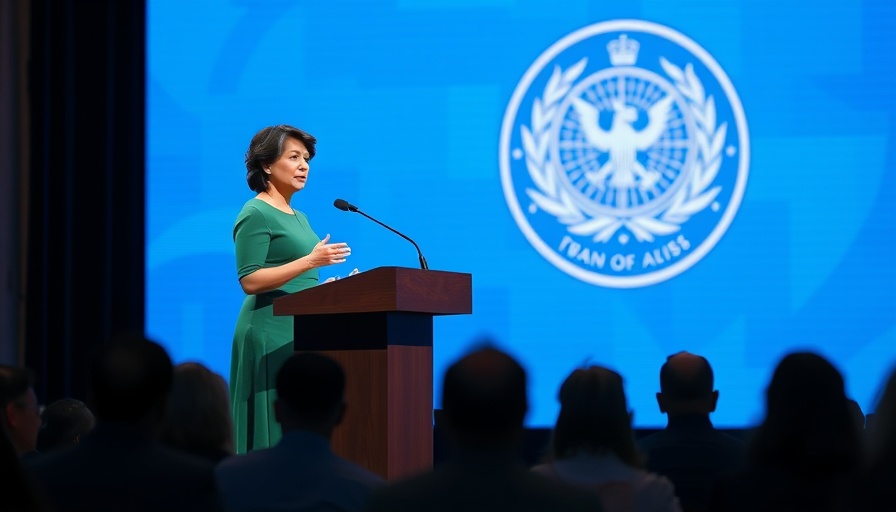
San Diego Supervisors Seek to Unlock County Reserves Amid Budget Crisis
In a decisive move that could impact services vital to San Diego residents, Democratic Supervisors Terra Lawson-Remer and Monica Montgomery Steppe are advocating for a change in the county’s reserve policies. Their proposal comes as the county grapples with a looming $138.5 million budget deficit and the possibility of federal funding cuts. The duo aims to tap into the nearly $3 billion in reserves to secure essential services for the community, projecting a potential windfall of around $355 million.
The Current Landscape: Navigating Budget Challenges
The urgency behind Lawson-Remer and Montgomery Steppe’s proposal is underscored by the county's financial dilemma. With an estimated budget deficit looming, the two supervisors are pushing for a re-evaluation of the reserve funds, focusing particularly on $692 million from an unassigned account, which is viewed as a rainy-day fund, and an additional $635 million from an assigned fund designated for future expenses. In a politically divided Board of Supervisors, the fate of this proposal hangs in the balance, especially considering an upcoming crucial election.
Essential Policy Changes: A Pathway to Access Funds
To unlock these funds, the supervisors propose key policy changes. Currently, county officials must maintain a reserve equivalent to at least two months of operating costs, ensuring the county has a buffer against financial shocks. This requirement is based on guidelines from the Government Finance Officers Association. By modifying these reserves, they seek not only to mitigate budget shortfalls but also to better prepare the county for any unforeseen challenges.
Potential Implications for San Diego Residents
If successful, Lawson-Remer and Montgomery Steppe's proposal could significantly transform how the county manages its financial resources. By combining the unassigned and assigned funds into one collective rainy-day fund, the estimated rainy-day fund could expand to a robust $1.3 billion. This could provide the county with flexibility in addressing various one-time expenses, shielding residents from potential service cuts.
A Future-Oriented Perspective: Learning from Best Practices
The supervisors' initiative draws inspiration from industry best practices recommended by the Government Finance Officers Association. This strategic approach could serve as a proactive means of safeguarding San Diego’s financial health while ensuring that residents continue to receive necessary services. By focusing on prudent financial management, the county might enhance its resilience against future economic downturns.
Engaging the Community: A Call for Support
As the county prepares for discussions at the Board of Supervisors meeting next month, community input will be crucial. In a time of financial uncertainty, residents’ voices should be heard in shaping the future financial policies that could impact their daily lives. Engaging San Diego residents in this dialogue ensures that policy decisions reflect the community’s needs and priorities.
It is imperative for citizens to advocate for a transparent process where discussions about county reserves prioritize their health, welfare, and economic stability. As this initiative unfolds, public support may significantly influence decisions related to financial access and reserves management.
In light of Financial Planning’s critical role in local governance, community members should actively engage with their supervisors to express support for the proposal, ensuring that the county’s financial strategy aligns with the public's interest. Together, citizens and leaders can work towards fostering a more sustainable and resilient San Diego.
 Add Row
Add Row  Add
Add 




 Add Row
Add Row  Add
Add 

Write A Comment